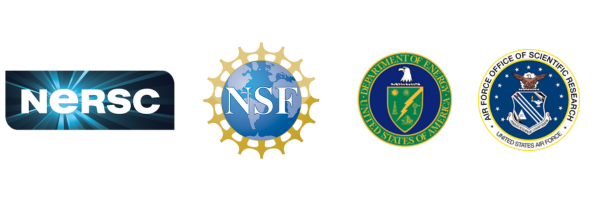

Quantum many-body systems theory is important and interesting in both application and fundamental science. As a key to the next technological revolution, these systems lead to high-temperature superconductors for lossless power transmission, quantum computing devices, high-efficiency photovoltaic devices, and novel transistors for ultrafast switching. On the other hand, the quantum entanglement possesses exotic states of matter, but many traditional perturbative or mean-field approaches are insufficient to address them.
The research of the Wang group lies in elucidating quantum many-body systems using state-of-the-art computational techniques. We are particularly interested in bridging the experimental observations with theoretical models. Our interest also extends to the connection with analog quantum simulations and quantum algorithms.
More coming soon!
Our research is funded by:

